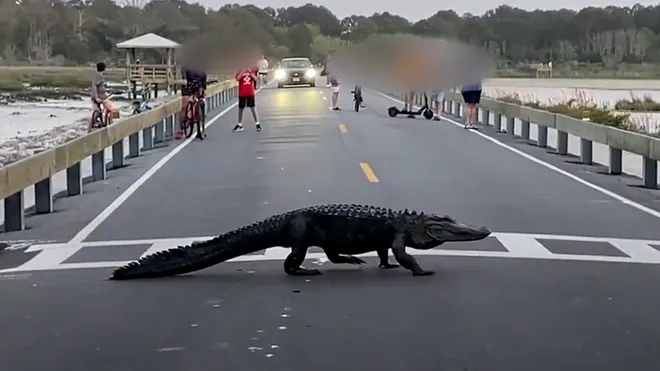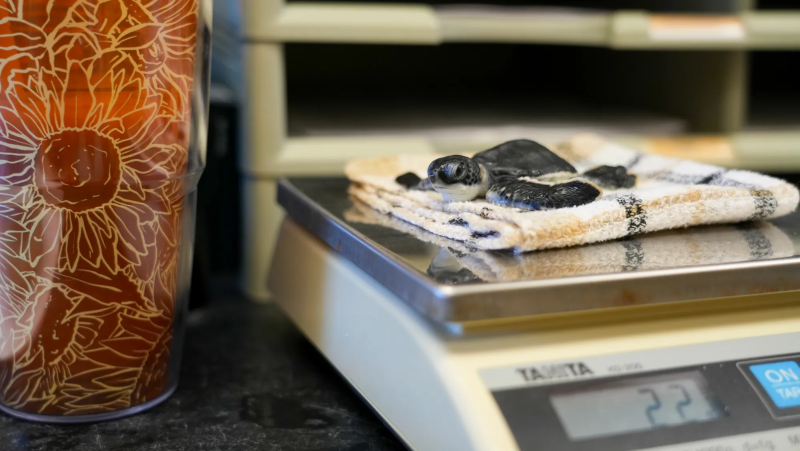Video shows massive gator leisurely crossing the road at South Carolina park, drawing onlookers
There's something different about a pedestrian who crossed the road at a South Carolina state park this week. For starters, he has scales, a long tail and he was moving pretty darn slow.
The slow-but-steady walker is an alligator captured on camera Tuesday at Murrells Inlet in South Carolina’s Huntington Beach State Park, wrote Austin Bond, the coastal scenic photographer who captured the reptile on film.
"Why's he going so slow?" one child asked as the gator crossed the road and eventually came to a stop, leaving its tail partially out in the roadway.
Bond commented on his viral gator post later and added that he was riding his bike at the time. He only saw the gator once kids in the area alerted him.
“It was off the road and I didn't see it,” wrote Bond, who told USA TODAY Thursday afternoon that the group of kids who warned him knew to stay back.
They were a great group of kids, he said.
He added that alligators spend most of their life in freshwater but will sometimes enter saltwater to eat blue crabs and fish. In the video he recorded, the gator was leaving the saltwater side and headed to a freshwater lake, he said.
Photographer saw more than a gator that day
Bond is a youth pastor at LowCountry Community Church in Murrells Inlet but does coastal scenic photography on the side for fun.
The same day he captured footage of the gator, he also saw a roseate spoonbill and two bald eagles.
Once his post made its rounds online, social media users chimed in and made a few jokes.
“At least he crossed at the pedestrian crosswalk,” wrote one person.
South Carolina State Parks said on its website that alligators that are stressed stop walking and lie down.
“If you see this behavior, do not move closer to the alligator,” the agency wrote on its website.

It’s also important to keep kids and pets close by when viewing gators. Staying on pavement or sidewalks is best. Also, stay at least 15 feet away from them.
Other tips include:
- If you see this behavior, do not move closer to the alligator.
- If you find yourself near an alligator on land, never get between the alligators and the water.
- Do not crouch down in front of an alligator because alligators pick their prey based on size. Crouching down makes humans look prey-sized.
- Do not feed alligators. When humans feed them, they assume they are eating parts of people that have fallen into the water.

“Feeding an alligator literally teaches them that people are made of food,” South Carolina State Parks wrote. “Most incidents where a person is injured by an alligator involve them being trained in that behavior by humans feeding them.”
Once the alligators become a threat to humans, they are often euthanized, the agency said.
“You can protect our wildlife by not feeding them,” the agency wrote.
Saleen Martin is a reporter on USA TODAY's NOW team. She is from Norfolk, Virginia – the 757. Follow her on Twitter at@SaleenMartin or email her atsdmartin@usatoday.com.
Disclaimer: The copyright of this article belongs to the original author. Reposting this article is solely for the purpose of information dissemination and does not constitute any investment advice. If there is any infringement, please contact us immediately. We will make corrections or deletions as necessary. Thank you.



